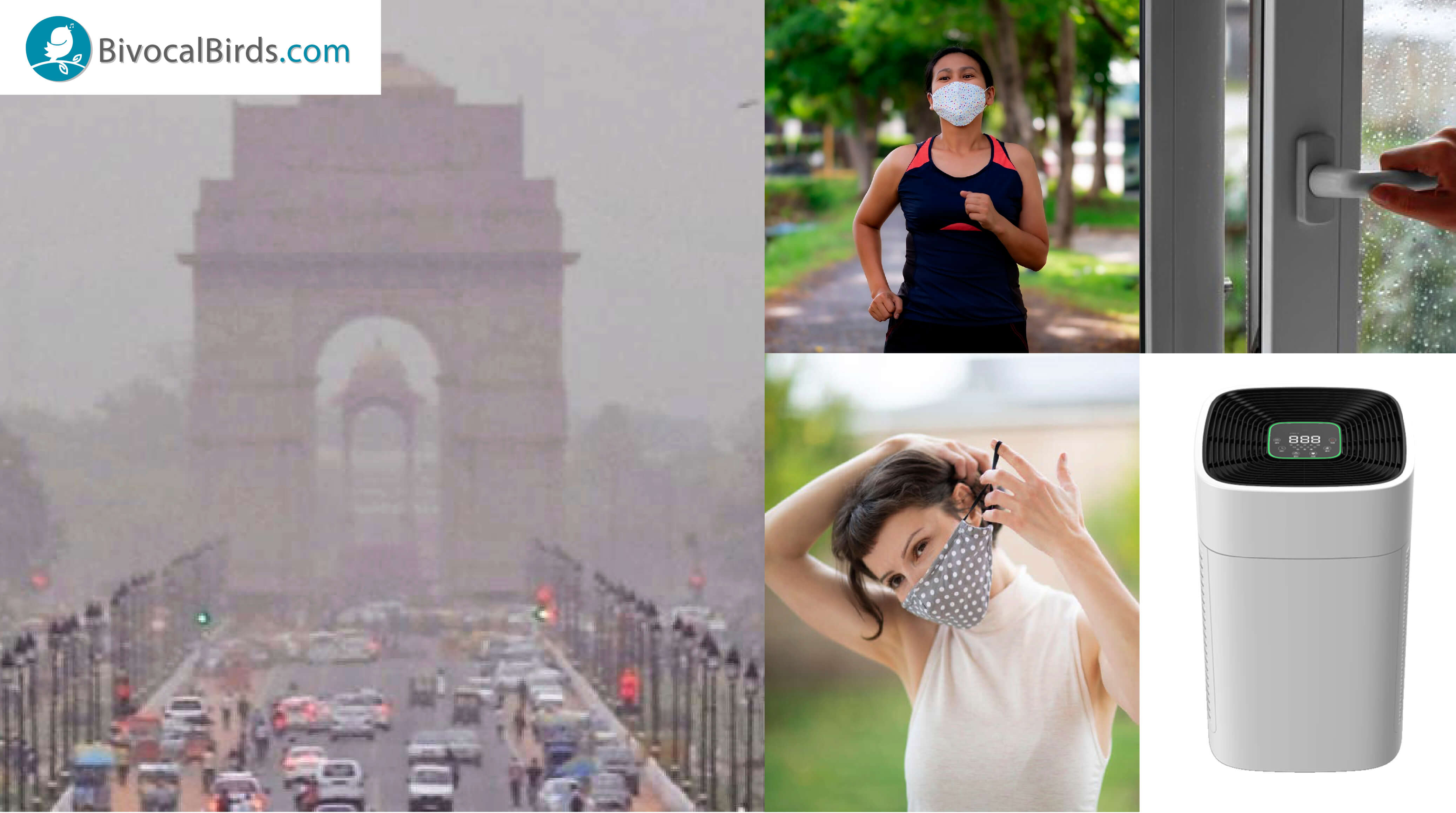Steps to Protect Yourself from poor Air Quality Index After Diwali
 20-Apr-2022
20-Apr-2022A day after Diwali air quality index in Delhi descended to its minimum and this led to health hazards in Delhi. Due to the burst up of firecrackers air quality degraded to a very low quality and crossed the permissible limits after the night of Diwali.
It has been 15th November now and the air quality is still a matter of concern. According to SAFAR( System of Air Quality & Weather Forecasting & Research), the air quality index in Delhi today is in between moderate PM10(μgm-3)-178 and poor PM 2.5 (μgm-3) -102.
An AQI(Air Quality Index) which ranges between 0-100 is evaluated to be good and satisfactory. Above that to 200 is moderate while above 200 to 300 is poor and above that falls in very poor and severe category. As per WHO (World Health Organisation), an index of around 10 is believed to be as safe.
The air quality in Delhi is poor all year, but it deteriorates dramatically during the winter, exacerbated by Diwali firecrackers and stubble burning in neighboring states.
Uncomfortable breathing, nausea, headache, cold and cough, chest pain, and other symptoms are caused by smog.
Here is a seven-step guide to protecting yourself from pollution:
Stay inside.
Until the situation improves, avoid morning and evening walks and try to exercise only at home. According to a recent study, Delhi's morning walks are bad for your lungs and can harm your immunity. So think twice before venturing out for some fresh air or inhaling the deadly smoke. The morning is the worst time for air pollution. Shift outdoor activities to the evenings, when pollution levels are lower.
Related: Top 7 Air Purifying Plants for your Home
Utilize anti-pollution masks.
With such septic air quality, it becomes necessary to wear a mask. It is critical to select the proper mask. In an ideal world, a mask would filter out all dust particles from the air you breathe in.
Maintain hygiene and stay covered up.
Infections are more likely in the winter, so try to wear full-sleeved clothing and full bottoms. Furthermore, it is critical to wash your hands and feet every few hours to remove dirt particles from the environment. If at all possible, clean and wash your surrounding roads to help settle the dust and pollutants.
Purchase an air purifier.
In today's toxic air, an air purifier is highly recommended. If you have children, the elderly, pregnant women, or asthma patients in your home, an air purifier is a must-have. A good air purifier costs between Rs 6000 and Rs 30000, which is a better investment than a trip to the doctor.
Make use of a closed-transportation system.
Avoid riding in open vehicles like two-wheelers and auto-rickshaws. Instead, take the metro, buses, or a car. In fact, you should practise "carpooling" to reduce fuel emissions, as this is one of the leading causes of air pollution. Fewer cars on the road equal lower greenhouse gas (GHG) emissions and better air quality.
Read More: Tips To Celebrate Diwali In Your Rental Apartment
Grow trees as well as indoor plants.
Plants emit oxygen. As a result, the best way to improve air quality is to plant as many trees as possible in your surroundings. Some plants that can purify the air and thus reduce indoor pollution include aloe vera, areca palm, English ivy, and spider.
Eat healthily and exercise regularly.
Finally, it is critical to maintain a healthy diet rich in fruits and vegetables. Stay hydrated to keep your immune system strong and ready to fight off diseases. Water proves out to be a cleansing agent of your body. Include vitamin C and vitamin A-rich foods in your diet to keep your immune system healthy, such as oranges, carrots, and lemon.
Incorporate ginger and garlic into all of your dishes, and consume yoghurt once or twice a day. Jaggery (Gur) can help cleanse your lungs of pollutants. You can eat it every night at night or simply replace sugar with jaggery in your daily diet. Don't exercise outside of your house as you will breathe in poor quality air.
Check out BivocalBirds for getting a flat on rent at a place which is less polluted.
Read More: How NRI can manage their property back in India through BivocalBirds?



